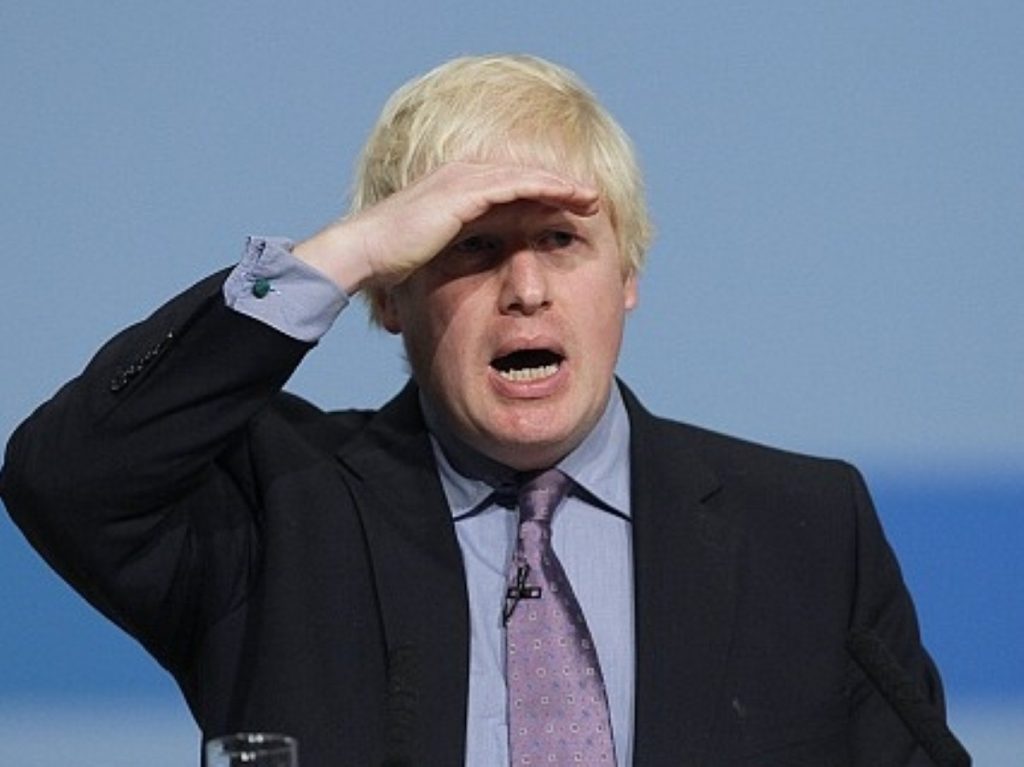Boris demands Tory BBC boss
The next director-general of the BBC should be a Conservative, Boris Johnson has demanded.
The re-elected mayor of London used his column in the Telegraph newspaper to lash out at the corporation shortly after winning the contest for four more years at City Hall in which he claimed he "sometimes felt that my chief opponent was the local BBC news".
Mr Johnson accused the BBC of being irrationally pro-European, plotting to undermine its private sector rivals and maintaining an "overwhelming" editorial bias.
"The prevailing view of Beeb newsrooms is, with honourable exceptions, statist, corporatist, defeatist, anti-business, europhile and, above all, overwhelmingly biased to the left," he wrote.


He singled out the BBC's arts editor Will Gompertz's criticism of the ArcelorMittal Orbit in Stratford that it should be larger and free to the public as summing up "everything that is wrong with the BBC and this country".
"BBC News is committed to impartiality and we reject Boris Johnson's assertions of bias," a BBC News spokesperson said.
"Our approach means asking difficult questions of politicians, businesses and unions alike.
"People with trenchant views often find this process uncomfortable but our audience expects us to challenge those in power as well as those who seek it."
The London mayor said the resignation of director-general Mark Thompson, who is stepping down this autumn after ten years in the job, was an opportunity for right-wingers to begin to change the corporation's culture, however.
"The Lib Dems should allow the government to appoint someone to run the BBC who is free-market, pro-business and understands the depths of the problems this country faces," he wrote.
"We need someone who knows about the work ethic, and cutting costs. We need a Tory, and no mucking around. If we can't change the Beeb, we can't change the country."
Labour criticised the article by linking Mr Johnson's attack on the BBC with his politicisation of the police, after he fired Metropolitan police commissioner Sir Ian Blair in 2008.
"The importance of the BBC to Britain today is hard to overstate, and it is so trusted because it reports politics impartially," shadow culture, media and sport secretary Harriet Harman said.
"The whole point of the director-general of the BBC is that they are neutral. But just as Boris Johnson thinks he can interfere with the police, he clearly thinks he can interfere with the BBC."
Mr Johnson's Telegraph column is being interpreted in other quarters as a move advancing his leadership credentials.
He attracted criticism during the recent mayoral campaign for continuing to write for the newspaper, which gives him an opportunity to air his views on national issues extending beyond the capital.
Mr Johnson was careful to tie his arguments to the current economic situation.
"None of this might matter, if we were not going through a crucial and difficult economic period," he wrote.
"We now have the twin problems of dealing with the debt, and recovering competitiveness – and neither of those is easy when the BBC is the chief mirror in which we view ourselves.
"If you are funded by the taxpayer, you are more likely to see the taxpayer as the solution to every economic ill."
Mr Johnson has handed his deputy mayor Kit Malthouse responsibility for business and enterprise in his second term, as part of his efforts to "boost growth and get people into work".
"I'm putting jobs and growth at the heart of my mayoralty, focusing our efforts on driving London's economy forwards, out of the recession, investing in our infrastructure and securing Londoners' futures," he said when announcing his mayoral team last week.

